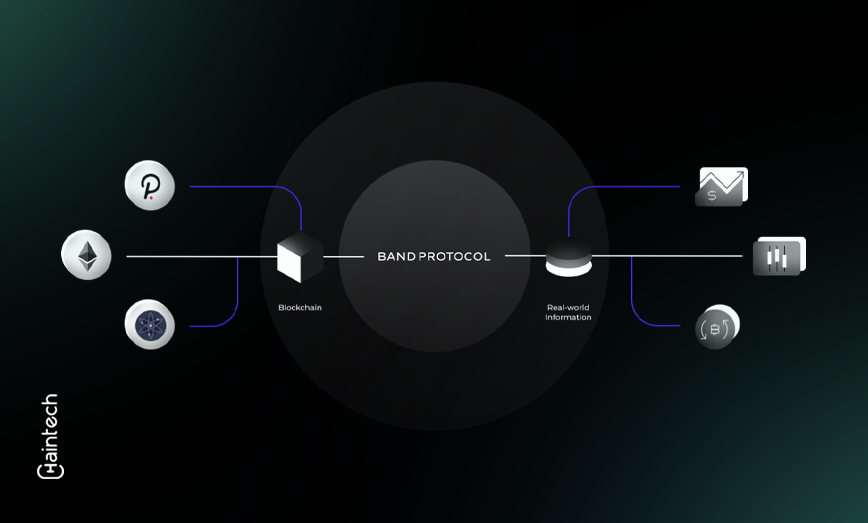Revolutionizing Indian Healthcare: How Blockchain-Based Projects Are Reshaping the Industry

The Indian healthcare system is a vast and intricate network of both public and private providers that aims to deliver affordable and accessible healthcare services to a population of over 1.3 billion people. It is a crucial sector of the Indian economy, generating substantial revenue and providing significant employment opportunities.
The government’s role in healthcare primarily involves operating limited secondary and tertiary care institutions in major cities while emphasizing the establishment of primary healthcare centers (PHCs) in rural areas to offer basic healthcare facilities. On the other hand, the private sector plays a dominant role in delivering secondary, tertiary, and quaternary care, with a significant presence in metropolitan areas, tier-I and tier-II cities.
To further advance healthcare in the country, the Indian government allocated funds amounting to 2.1% of the GDP during the fiscal year 2021–2022. This allocation signifies the government’s commitment to investing in healthcare and indicates the importance placed on addressing the nation’s healthcare needs. Moreover, India has gained recognition as a medical destination for international patients due to its provision of high-quality services and well-trained healthcare professionals. This has contributed to medical tourism, where individuals from other countries seek medical treatment in India.
Despite notable achievements, India, with a population of over a billion people, continues to grapple with several significant challenges in its healthcare system. These challenges include inadequate healthcare infrastructure, an uneven distribution of healthcare resources, high out-of-pocket expenses for patients, a lack of interoperability among healthcare systems, and concerns regarding data security and privacy.
However, India is a country that actively promotes technological advancements and strives to leverage emerging technologies in various industries. The healthcare sector is no exception. Presently, India stands at the threshold of adopting blockchain technology as a potential solution to address these persistent challenges and improve the accessibility and ease of healthcare services.
Let’s look at some of the blockchain-based healthcare startups in India that are working towards combating these challenges by leveraging the power of blockchain technology.
- PranaCare: PranaCare is an innovative Indian healthcare startup that leverages blockchain technology and artificial intelligence (AI) to provide a collaborative platform for wellness experts in various fields. Their platform connects professionals such as dietitians, diabetologists, cardiac experts, gynecologists, pathology labs, and fitness clubs. One of the noteworthy features of this platform is its decentralized ledger for patient data records. By employing cryptography, patient records are linked and stored in an immutable and traceable manner. This enhanced data security ensures that only authorized healthcare stakeholders can access patient information, leading to improved privacy and confidentiality.
PranaCare’s platform benefits patients and healthcare providers and extends its advantages to insurance companies and compliance monitoring authorities. The untampered patient data records stored on the blockchain offer a reliable source for fraud control and enable insurance companies to assess risks accurately.
Learn More: PranaCare
2. Aindra Systems: Aindra Systems describes itself as a passionate group of technophiles who are dedicated to making healthcare more accessible and affordable. Their mission is to democratize access to quality healthcare by leveraging advanced technologies, particularly artificial intelligence (AI). Their AI platform, Astra, is designed to detect critical illnesses, primarily focusing on cancer. Their flagship product, CervAstra, is a point-of-care detection system specifically developed for cervical cancer. It offers a quick, affordable, and accessible solution for women seeking screening. By utilizing computational pathology and AI algorithms, CervAstra enables women to visit their nearest primary health center, undergo screening, and receive their reports in a straightforward manner.
Aindra Systems believes that leveraging technologies like AI can significantly enhance the healthcare system by providing more intelligent, faster, and more reliable diagnostic solutions. They aim to overcome the challenges of the current healthcare system by utilizing deep technology to create accessible and affordable healthcare solutions.
Learn More: Aindra Systems
3. Qure.ai: Qure.ai is an innovative company that specializes in providing breakthrough solutions in artificial intelligence (AI) for radiology. Their mission is to disrupt the traditional approach to radiology by leveraging AI technology to enhance the accuracy of medical imaging interpretations and improve health outcomes.
By harnessing the power of deep learning, Qure.ai offers an automated interpretation of various radiology exams, including X-rays, CT scans, and ultrasound scans. Their machine-supported tools assist medical imaging professionals who may be constrained by time and resources, enabling faster diagnosis and expedited treatment.
Learn More: Qure AI
4. Tricog: Tricog is a leading name in the Medtech space that specializes in remote cardiac diagnosis. They aim to empower healthcare providers by leveraging robust Artificial Intelligence (AI) technology, combined with human expertise, to address critical cardiovascular conditions by identifying them promptly and accurately.
Tricog’s products are designed to provide doctors with enhanced accuracy and consistency in interpreting electrocardiograms (ECGs). By utilizing AI technology, their products aid in detecting potential cardiac abnormalities, enabling early intervention and increasing the chances of patients surviving a heart attack.
Learn More: Tricog Health
Closing Thoughts
While blockchain technology holds great promise, there are also challenges to its implementation. These include the need for standardization, scalability, regulatory frameworks, and infrastructure development. Additionally, addressing data privacy and security concerns, training healthcare professionals, and gaining stakeholder acceptance will be crucial for successful adoption.
In conclusion, implementing blockchain technology in the Indian healthcare system can potentially address challenges related to data interoperability, security, fraud prevention, decentralized data ownership, streamlined payments, and medical research. However, it is crucial that the concerned authorities carefully plan and execute blockchain initiatives while considering the specific needs and context of the Indian healthcare ecosystem.









